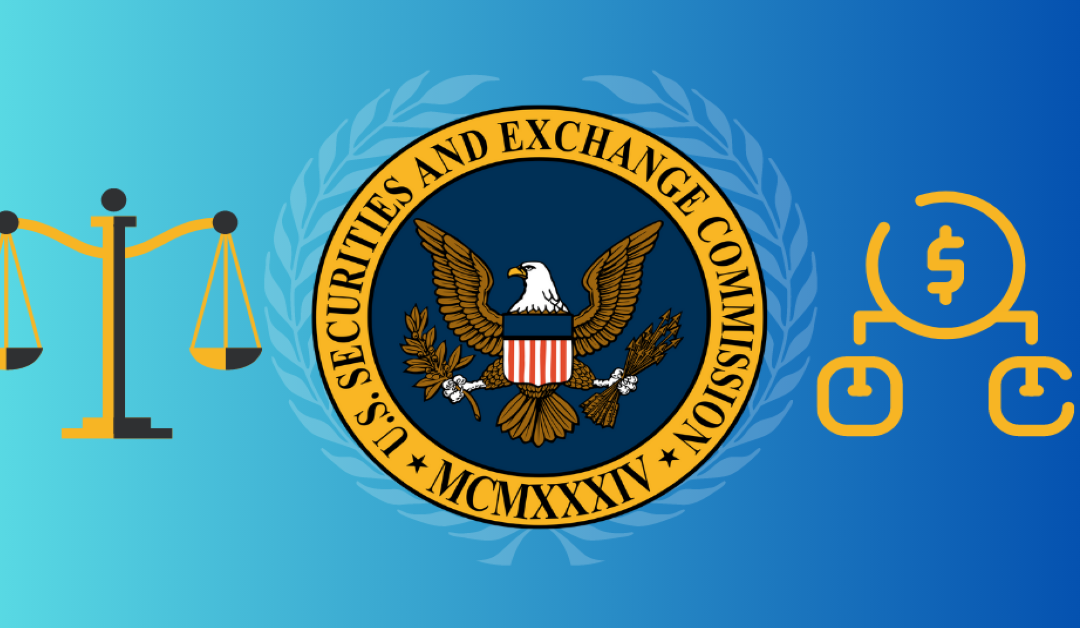
by Samuel Mbaki | Mar 23, 2023 | Regulation
Do Kwon, Terra Labs co-founder and CEO, has been arrested in Montenegro, according to Interpol and US prosecutors who are now planning extradition and pressing charges.
Another crypto ‘Kingpin’ in the ropes?
A report from the Minister of Interior in Montenegro, Filip Adzic, indicates that the Ex-CEO of the fallen crypto ecosystem, Terra, DO Kwon, has been arrested and detained there.
Adzic Tweeted saying that their police have detained a person that is suspected of being one of the most wanted fugitives, Do Kwon. He added that the suspect was detained at the Podgorica airport using falsified documents, but they are still awaiting solid confirmation of his identity.
Interpol confirms Do Kwon’s arrest
Official information has been offered now to back the claims from the unverified Twitter account used by Adzic that Kwon has been arrested, and the US is already pressing charges. A report from CNN today claims that Kwon will be extradited to the US to answer eight charges of wire fraud, securities fraud, commodities fraud, conspiracy, etc.
Interpol has confirmed that the suspect was Kwon via a fingerprint match against the available data in Interopl’s national central bureau in Seoul. He will now be answerable to the collapse of his $40B crypto empire, which saw two major coins, LUNA and UST stablecoin devalue. Do Kwon might also face similar charges to Sam Bankman-Fried, who is being prosecuted in the U.S.
Keep watching Fintech Express for updates on Kwon and Bankman-Fried’s cases and other Fintech-related news.

by Fintech Express | Mar 23, 2023 | Regulation
The US SEC has issued a Wells notice to crypto exchange Coinbase over its crypto staking services. A Wells notice always comes before this regulator legally presses charges.
SEC issues a Wells notice to Coinbase
The US SEC has continued its crypto crackdowns, with Coinbase as its latest victim. It has issued a Wells notice saying that the exchange is offering some services in the US that can be classified as securities without its clearance.
This Wells notice is the second that the SEC issued this year after it sent one to Paxos in February. At the time, the SEC claimed that Binance USD pegged stablecoin, BUSD was a security, and Paxos should cease issuing it. The SEC has also charged Kraken, another crypto exchange, $30M for offering unregistered crypto staking services in the US. This news rocked the internet and caused a series of debates as Coinbase CEO had claimed that they had received rumors that the SEC was preparing to fight crypto staking.
Due to regulatory uncertainty, the news of a Well notice being issued to Coinbase has greatly shaken its stocks. The shares fell almost 12% in extended trading and another 8.16% during the trading hours.
Coinbase stands its ground against SEC charges
Coinbase has issued a statement regarding the notice saying that it supposes the SEC may aim to use enforcements on its Spot market, staking services, Coinbase Prime, Earn program, and the Coinbase Wallet.
It noted, “The potential civil action may seek injunctive relief, disgorgement, and civil penalties.”
The company’s CEO has called out the SEC, saying the SEC scrutinized their products pre-launch and gave them the go-ahead. He assured Coinbase clients that the company is ready to prove its products are law-compliant in court and will continue supporting them.
It is not the first time he has said that his company is ready to use legislation and defend its operation from a hawkish SEC. In February, he condemned the SEC for charging Kraken and said Coinbase would face the regulator in court.
Keep watching Fintech Express for regulation and fintech-related news.

by Fintech Express | Mar 22, 2023 | Banking, Technology
Video game retailer GameStop has released a positive Q4 financial report, shocking many short-sellers as its shares skyrocketed. The company’s stocks had been on almost a free fall over the past few months, but the trend seems to be reversing now.
GME shorters in for a rude shock
GameStop managed to stay afloat and turn a profit $48.2 M in Q4 2022 after successively making losses in all quarters since 2021. The report set the market ablaze, with GME stocks rising by almost 50% at one point. As the euphoria behind the company’s stock continues growing, more shorters are at risk of being squeezed out of the markets.
In the financial report announcement, the company said that its hardware and accessories category had a net profit of $1.24B, a 4.6% rise, while its software sales fell 15% to 670.4M. It also stated that its collectibles category slingshot by 12% to 313.2M. The company reported 16 cents per share, a huge difference from the reported 49 cents per share loss a year earlier
Global Markets continue receding
The ongoing financial crisis is becoming a worrying issue lately, with banks collapsing globally and inflation spiking. Recently, major banks like SVB, Credit Suisse, Silvergate, and Signature banks were forced to close down due to bank runs and non-compliance with banking regulations.
Ironically, investigators and auditors have discovered over 200 more banks may have the same loopholes in their balance sheets as the Silicon Valley Bank. These developments have sparked debates on Socials, with people exchanging views on who is to blame for what’s happening.
President Joe Biden has come out to say that Venture Capitalists and Bank investors are to blame for the mismanagement that is going on. Therefore, they will not be bailed out if case banks do not perform according to their plans
He has also ‘assured’ US Citizens that the banking system is strong and safe, a comment that not so many people agree with. Some Twitter users criticized the FDIC and current efforts to ‘save’ the banking system.
Keep watching Fintech Express for banking and other Fintech-related news.

by Jefferson Nunn | Mar 21, 2023 | Cryptocurrencies
All successful technologies in the past few decades experience five major waves. Crypto is nearing wave five. Unlike other major technologies, Crypto is unique in that not only does it tie technology to finance, but it also represents a major paradigm shift in our approach to work.
One of the unique crypto aspects is this philosophical underpinning about how work is done. The removal of even one potential overlord from the traditional workflow – a “boss” if you will – has the traditional finance community completely riled up. It is my opinion that the centralized finance debacles that we have seen has led to the current atmosphere of distrust within the crypto community. We must restore trusted communications between project leaders if we are to continue crypto’s evolution beyond wave 5.
Crypto technology is usually associated with just a faster way of paying someone. For example, $100 is converted to some number of bitcoins and sent to another address within minutes. Although this is a major ‘selling’ point of crypto, it is not the only aspect of crypto’s evolutionary approach to finance. Decentralized Finance, NFT’s and Smart Contracts are major evolutionary steps that has increased the fear and loathing of crypto by leaders of Centralized Finance.
The average consumer is not well informed by their usual sources of news. Industry publications such as Forbes, the Wall Street Journal and others has positioned crypto as something to fear. This is because Smart Contracts has removed the traditional concept of an overlord. The traditional finance community has long held the belief that an asset manager is required to manage any financial asset. A banker, a stockbroker, an investment advisor and so on are examples of these.
Decentralized Finance (DeFi) has removed the need for such individuals. An asset can be placed within a DeFi Cryptocurrency Smart Contract and earn compounded interest automatically. Sometime between 2013 and 2015, I believe that this new concept was seen as a major threat to Centralized Finance (CeFi) and their community rallied to create many CeFi Cryptocurrency exchanges with the same appeal as the DeFi Cryptocurrency Smart Contracts.
FTX, Voyager, Luna, Celsius and many others came out of the 2015 boom and bust cycle. When each of these exchanges failed, a new word was spread by traditional finance journals, such as the Wall Street Journal. To wit, their headline reads: “Contagion” and “Fear” spreads in the Crypto community. There are now so many TV shows, articles and more that state that Crypto is something to be afraid of. Investors have lost “billions” to crypto. A more accurate article would be to say that investors were scammed by the centralized finance community utilizing the selling points of crypto technology.
Throughout this entire process, the crypto technology has continued to improve and mature. Ethereum has switched to proof of stake and is continuing to evolve in both transaction speed and technical language capabilities. There are many crypto projects that are evolving as well. Solve.care, Drone Industry Systems, Presearch and many others are leveraging the crypto technology to create something better for all of us. Within each of the three projects, it is not necessary to be an investor of the project to receive a benefit.
With Solve.Care, one can just be a member of an exchange and then to see a doctor. The care wallet takes care of everything. With Drone Industry Systems, one can rent rooftop space or place a drone within their network. With Presearch – simply search on Presearch.com. Each of these services has an access point for a traditional user of the system. Crypto technology is leveraged to provide an enhanced experience for the end user. If one is interested to become an investor of these projects, then the traditional rule of finance still applies – due diligence is necessary. I suspect that even these rules needs to be enhanced over time such that investing into and providing governance around these projects becomes meaningful. DAO is still in the early days and it will likely take at least a decade before DAO’s become commonplace and standardized.
Regardless, it is important to continue to communicate. Traditional Finance does not have a lot of runway left. The formula behind it is simply broken beyond repair. Any true dashboard that examines the underpinnings of even the US Dollar is flashing code red. I hope and I pray that cryptocurrency can provide a stable foundation for the language of energy. It can and it has done some incredible things over the last decade. But what it has not been able to do is to restore trusted communications between project leaders.
There must be a way that we can continue to communicate and to share projects without the fear and loathing that these centralized financial leaders have so wrongly imposed upon us. To our audience, we cannot be held to such a high standard to imply that any spoken word is the absolute truth beyond the shadow of a doubt. We have all been wrong at some point or other in our lives. We have all associated with undesirables from time to time. Such are the rigors of life.
If we communicate about a project, this does not imply endorsement of any kind. Each of us will do as much as we can to examine a project. If it looks cool or exciting, we might invite others to examine the project. By no means do we imply that everyone should immediately become accredited investors and to deploy their life savings in the gamble that they will immediately become rich. This concept is a creation by centralized finance leaders and spokespersons. They portray themselves as the gatekeepers of the overnight success sensation. That one requires an investment advisor to immediately gain unimaginable wealth. There are no genies in this world. And the world has long used up its’ three wishes.
What cryptocurrency can do – through some seriously hard work by some talented individuals – is to save our world from a certain death. Capitalism is on a path to consume itself and to leave nothing left. One look at Putin’s threats to unleash a radioactive end to this world is sufficient. All of this fear leads to the immediate reaction to shell ourselves off from the world and to speak no further evil. This cannot and does not work.
We must communicate to a community. We must share in our understanding of a broader world and to invite participation in and of it. No person is an island.
Sharing our understanding about another project to a community does not imply an endorsement or investment advice. It simply is saying to the world, “hey look – I found something cool and exciting!” In this way, we can all work together towards a better world.
If a project shares a coupon code or a lead generation form from another project, it doesn’t mean that the other project is a guaranteed winner. It may just be a way for the community to examine the project and to learn more about it for any variety of reasons.
On standard TV Talk Shows, Oprah Winfrey shares many products. These products do not carry her endorsement. There have been several spectacular failures of a product featured by Oprah. There are also many good products that the consumers have enjoyed. Oprah is not judged by the products that she features. She invites the owners of the products onto the air to discuss the products to her audience. The audience can make up their own mind about the product. She is using her capabilities as a leader to interview other leaders.
The crypto community needs to get past its’ fear of another. There will be failures. There will be successes. Over time, standards will be created and the crypto community will soon enjoy the fifth wave.
by Fintech Express | Feb 28, 2023 | Uncategorized
In the newest edition of “Around the Block With Jefferson Nunn,” Jefferson interviews Andrew Masanto & Conrad Whelan of Nillion.
Andrew Masanto is a co-founder of both Hedera Hashgraph and Reserve, two of the top 100 cryptocurrencies, and has recently co-founded NFT.com, a Web3, community-driven NFT marketplace that has many celebrity supporters behind it, along with co-founding Nillion, the first ever decentralized MPC network. Outside of web3, Andrew has also co-founded PetLabCo, the fastest growing pet health supplement company in America.
Conrad Whelan is the former Founding Engineer of Uber and is now the Founding CTO of Nillion. Conrad Whelean grew up in Calgary, Canada before moving to San Francisco to start Uber. He now lives in Amsterdam.

by Samuel Mbaki | Feb 21, 2023 | Cryptocurrencies, Regulation
Christopher Emms has been allegedly arrested and detained in Moscow for aiding North Korea with its crypto pursuits. It’s not Emm’s first time to be arrested on the matter as he had been in Saudi custody too but was released for lack of enough evidence.
Moscow detains a suspect for aiding North Korea
The Moscow bureau of Interpol has allegedly detained Christopher Emms in connection with past allegations of consulting for North Korea in crypto-related services. The British Citizen was arrested upon his landing in Moscow as his name had been on Interpol’s “red notice”
The 31-year-old British Citizen is alleged to have contacted North Korea and consulted for them in April 2022 alongside Spanish national Alejandro Cao De Benos. Interpol alleges that the two offered knowledge to North Korea on how to use blockchain technology and cryptocurrency in money laundering and evasion of sanctions.
More information indicates that the two planned and moderated the 2019 Pyongyang Blockchain and Cryptocurrency Conference. It also indicated that there was a third person in the conspiracy, Virgil Griffith, a former Ethereum developer. Griffith was arrested by the Federal Bureau of Investigation in November 2019 and pleaded guilty to the charges, which ended up getting him 63 months in prison.
Now, Emms could face up to 20 years in jail for one count of conspiring with North Korea to violate the International Emergency Economic Powers Act.
Crypto crackdowns continue
Crypto crackdowns are increasingly becoming a hot trend in the crypto market. The US has been at the forefront of these crackdowns. Earlier this month, the US settled charges with Kraken crypto exchange and continued taking legal action against crypto exchange founder Sam Bankman Fried. Binance plans to settle charges with the US SEC by taking a penalty.
The UK has been adamant about a crypto advertisement, a stance South Africa is also taking. The two countries seek to free their citizens from the dangers of wrong and deceitful crypto advertisements.
These efforts foreshadow a coming regulatory clean-up in the crypto space. Keep watching fintechexpress for this and other news as soon as they happen.

by Betty W. Charles | Feb 16, 2023 | Banking, Finance
All economies worldwide, including the wealthiest ones like the U.K., US, Germany, Australia, and Spain, are being afflicted by a spiking level of inflation. For instance, the US suffered the highest increase of 9.1 percent in consumer prices in 2022. Germany suffered an annual inflation increase of 7.5 percent, while the U.K. suffered an increase of 8.2 percent in the same year.
Why is inflation spiking?
Covid-19 is among the global issues tied to the surge in inflation. Since 2020, the supply chain systems have experienced disruptions across transportation by ships, flights, trains, and trucks, resulting in a strain on the supply chain. Consequently, the cost of shipping goods has risen sharply. Since many manufacturers rely on a just-in-time mode of production, they have not been able to overcome the shortcomings of the transportation snafus. Thus, shortages occur, and consequential surge in prices.
The pandemic also left lasting effects on the labour markets when many businesses had to close or fire many employees. Even after the restrictions were relaxed, these businesses could not hire their employees back. This led to labour shortages that needed higher capital to acquire and maintain.
As though the pandemic was not enough, the issue of inflation was compounded by Russia’s war on Ukraine. The war began in February 24 and interfered with the supply of grains and fuel globally. Some countries fought against Russian imports because of their involvement in the war, and in retaliation, Russia decided to halt its oil shipment.
This has resulted in the disruption of the market globally. The conflict between the two countries has increased uin food prices. Ukraine is among the largest food exporters due to its possession of fertile soils. However, Russia destroyed Ukrainian crops and undermined the country’s ability to export foodstuffs. This has led to a worldwide increase of agricultural commodities prices.
Top tips for surviving when inflation spikes
The spiking of inflation can cause strains on finances among many people, and there is a need to adopt strategies that will help to align with the prices. Here are some of the strategies to adopt:
1. Avoid taking debts
Although banks decided to maintain low-interest rates during the pandemic, new debts became a liability that needed to be serviced monthly. It reduces people’s financial flexibility because it adds extra to the budget. If taking loans is investable, at least consider shopping around for low-rate or zero percent balance-transfer cards. This will reduce the burden of the repayment and the extra interest rate.
2. Start paying more attention to sales
Inflation time is the time to become a bargain hunter. Paying more attention to sales will guide you where to whop what and when. Some people have resorted in taking advantage of price-matching policies by shopping essentials in bulk and enjoying the discounts that come with it. Others have switched to cheaper brands, which has helped them save a few coins that help them hedge against inflation.
3. Stay within a budget
Inflation makes it difficult for people to stay within a budget because the prices of commodities have gone high and the income is not increasing. It is important to reassess your spending habits and adopt more conservative ones.
This is the time to forego family vacations, changing the car out of luxury, gym subscription, dining out, and other things that can be put on hold. It is the time to check the things that you can temporarily do without to ensure that essentials such as housing, food, transportation and utilities are covered.
4. Save strategically
Some saving strategies such as high-interest savings account (HISA) are subject to earning less interest during inflation because of their variable rates. A smart way of saving during such a time is using methods with a constant rate of earned interests such as the Guaranteed Investment Certificate to ensure that even when the inflation is high, your savings are accruing interest at a constant rate.
5. Hunt for remote part-time positions
During inflation, as many companies are firing their employees, remote positions are their alternative labour markets as they are devoid of the costs that come with running a typical office.
A remote position will also be a smart way to reduce transport costs as one will work from home. It is also a way of earning extra income while still formerly employed to help curb the margin created by the hiked prices of commodities.

by Georgi Hristov | Feb 13, 2023 | Market update, Markets
The cryptocurrency market lost approximately $45 billion during the last seven days after hitting multiple resistances across the major cryptocurrency pairs.
BTC
Bitcoin erased 5.4 percent of its market cap for the period and moved further away from the critical monthly resistance at $23,300. The 24-hour trading volumes remained above the average for the last 14 days, but the BTC/USDT pair was in a desperate need of a pullback to ensure a proper consolidation is in place.
The price is still floating above both the last weekly high and the 21-period EMA on the weekly timeframe chart. It is also worth noting that the formed mid-term diagonal resistance could start acting as support if the zone around the mentioned high ($21,200-$20,600) provides the required stability.
The huge green candle from the week of January 9 was filling the gap that was formed during the first week of November, 2022, so the price is probably not looking for imbalances to cover at this point.
On the other hand, BTC has been lacking bullish momentum lately and the market structure might not support further increase until the monthly resistance is surpassed.
United States Securities and Exchange Commission investigating Paxos, issuer of BUSD, the native stablecoin of the Binance exchange.
The majority of the altcoins are registering double-digit loses today in the aftermath of the news that the third biggest stablecoin in the world is under investigation. Paxos announced it will stop issuing BUSD which resulted in the coin losing its peg against both competitor stablecoins USDT and USDC
ETH
The biggest and most popular altcoin – ETH is also under immense pressure after suffering a rejection at its monthly resistane near $1,690. It has corrected its price by 12 percent since then and it is currently flirting with the dynamic resistance of the short 21-period EMA on the weekly timeframe. Next support will most probably be around the $1,350-$1,280 area, which has previously acted as a Point of interest and where a high volume trading was recorded.
BabyDoge, another dog meme coin has been making waves lately thanks to the continues support from Elon Musk. The Tesla founder who is an avid Doge supporter wore a Dogecoin t-shirt during last night’s SuperBowl LVII
Baby Doge rallied 18 percent up since then and is now the third largest meme coin
Last but not least:
The popular Layer 2 chains Arbitrum and Optimism continue their expansion. The two are once again the fastest growing chains on the Top 10 list on DeFi Llama for the last seven days and also on a monthly basis.

by Samuel Mbaki | Feb 11, 2023 | Blockchain, Finance
Blockchain technology has been a phenomenal sensation in the fintech industry over the past decade following the launch of bitcoin. Bitcoin ushered in an era of digital money and changed how money functions for good. Here is how blockchain technology can be used to improve the finance sector.
- Increased transparency: One of the most significant benefits of blockchain technology is that it enables increased transaction transparency. This is because all transactions are recorded in a public ledger accessible to all interested parties. This increased transparency can help increase the credibility and trust of fiscal deals, thereby reducing the liability of fraudulent activities.
- Advanced effectiveness: Another crucial benefit of blockchain technology in finance is the improved effectiveness of processes. Transactions can be reused briskly and with lower bureaucracy than traditional financial systems. As such, this technology can help financial institutions save time, enabling them to offer more competitive services to their customers.
- Decentralized Operations: Blockchain technology operates on a decentralized system, meaning no central authority controls it. This makes the system more resistant to malicious attacks and reduces the threat of time-out caused by system failures.
- Better Data Management: With blockchain technology, financial institutions can store, manage, and track their data more effectively. This can help ease the delicacy and trustability of data and ensure that it’s fluently accessible when demanded.
- Increased Security: Blockchain technology uses advanced encryption to secure data, making it more difficult for hackers to steal sensitive information. This increased security can help prevent fraud and other malicious conditioning, giving financial institutions and users peace of mind.
- Further Accessible Services: Blockchain technology can make financial services more accessible to a broader range of people. For illustration, people who don’t have access to traditional banking services can use blockchain-grounded fiscal services to store and transfer their finances securely.
- Enhanced Compliance: This technology can help ensure financial institutions behave fluently with nonsupervisory conditions. This is because all transactions are recorded in a public tally, making tracking and covering them easier.
- Reduced Costs: By reducing the need for interposers, blockchain technology can help financial institutions save on its expenditure. This can help reduce the cost of services for clients, making them more affordable and accessible.
- Increased Competition: The use of blockchain technology can increase competition in the financial sector, enabling new entrants to enter the request and offer innovative services. This can help drive invention and facilitate the overall quality of financial services.
- Better Tracking of Finances: Blockchain technology can help fiscal institutions track the inflow of finances, enabling them to cover and help counter money laundering and other illegal uses. This can help reconfirm the character of banking institutions and increase public trust in the financial sector.
Conclusion
In conclusion, blockchain technology is implicit in bringing about numerous positive changes in the finance sector. This technology can help financial institutions offer better services to their clients and contend more effectively by perfecting transparency, effectiveness, security, and availability.
Still, it’s important to note that while blockchain technology has numerous benefits, it’s still a relatively new and untested technology, and its full impact on the finance sector remains to be seen.

by Fintech Express | Feb 10, 2023 | Banking, Cryptocurrencies
JP Morgan, one of the largest investment banks in the world, has lately made a vaticination about the future of finance in the DeFi( Decentralized finance) space. According to the bank, deposit tokens could soon trade on DeFi platforms in an analogous manner to stablecoins.
JP Morgan thinks tokenized deposit tokens could rival stablecoins
Stablecoins are digital assets pegged to the value of an existing currency or have become decreasingly popular in the DeFi and crypto space to give stability to the frequently unpredictable cryptocurrency request. Deposit tokens, on the other hand, are assets that represent a claim on a bank deposit.
JP Morgan and consulting firm Oliver Wyman have released a report on how DeFi could be a green field for traditional banking, particularly deposit tokens. The two believe that deposit tokens could be tokenized to operate on different blockchains, with the issuer responsible for creating a DeFi-like infrastructure.
JPMorgan believes that deposit tokens could offer a new way for investors to pierce the DeFi space, as they would give a position of security and stability analogous to traditional bank deposits. The bank also believes that deposit tokens could give way for institutional investors to gain ground in the DeFi space, as they offer a familiar and regulated investment option.
Blockchain technology to continue reshaping the finance world?
This vaticination from JPMorgan is significant as it shows the growing significance of DeFi in finance and highlights the eventuality for traditional fiscal institutions to get involved in this arising request.
It’s one of the starts of a long path where banks will adopt crypto and blockchain technology. It also shows a growing interest in the crypto space by banks and other stakeholders of the traditional finance sector.
It remains to be seen how deposit tokens will be welcomed by the DeFi community and how they will fit into the overall ecosystem; additionally, JP Morgan’s vaticination is one to watch as the DeFi space continues to evolve and develop.









